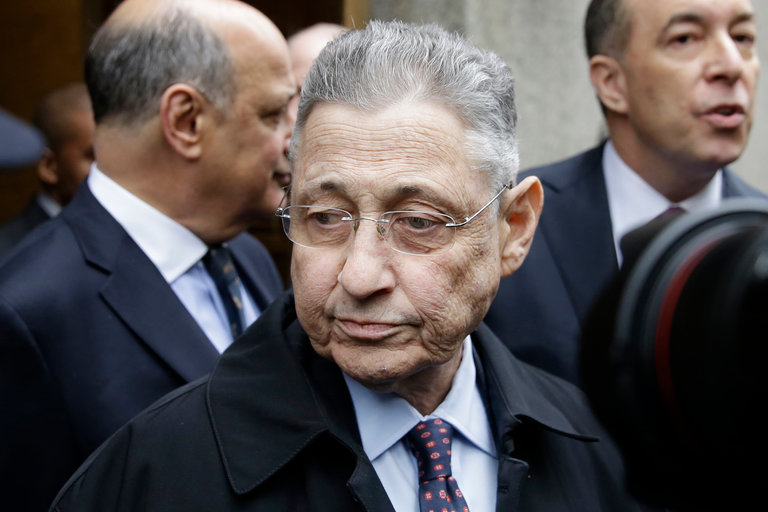This material belongs to: The New York Times.
A federal appeals court on Thursday overturned the 2015 corruption conviction of Sheldon Silver, the once-powerful New York State Assembly speaker who obtained nearly $4 million in illicit payments in return for taking official actions that benefited others, according to evidence presented at his trial.
In vacating Mr. Silver’s conviction, the appellate court cited a United States Supreme Court ruling last year involving Bob McDonnell, a former Republican governor of Virginia, that narrowed the definition of the kind of official conduct that can serve as the basis of a corruption prosecution.
The United States Court of Appeals for the Second Circuit in Manhattan concluded, in light of the Supreme Court’s narrower definition, that the jury instructions given by the judge in Mr. Silver’s trial were erroneous and that a properly instructed jury might not have convicted him.
“We recognize that many would view the facts adduced at Silver’s trial with distaste,” Judge José A. Cabranes wrote for a unanimous three-judge panel of the Second Circuit. “The question presented to us, however, is not how a jury would likely view the evidence presented by the government. Rather, it is whether it is clear, beyond a reasonable doubt, that a rational jury, properly instructed, would have found Silver guilty.”
“Given the teachings of the Supreme Court in McDonnell,” Judge Cabranes added, “and the particular circumstances of this case, we simply cannot reach that conclusion.”
Federal prosecutors quickly vowed to retry the case, but it was nonetheless a startling development that burnished Mr. Silver’s reputation as a man whose resilience and influence in New York seemed to know no bounds.
Mr. Silver, a 73-year-old Democrat from the Lower East Side of Manhattan, served for more than two decades as Assembly speaker. He was convicted on Nov. 30, 2015, of honest services fraud, extortion and money laundering in one of the most prominent corruption trials in New York City in decades.

Mr. Silver was sentenced to 12 years in prison by the judge, Valerie E. Caproni, but he was allowed to remain free pending his appeal. He forfeited his Assembly seat upon conviction.
At trial, prosecutors presented evidence that Mr. Silver had obtained payments in return for actions taken on behalf of a prominent cancer researcher, Dr. Robert N. Taub of Columbia University, and two real estate developers, Glenwood Management and the Witkoff Group.
Joon H. Kim, the acting United States attorney for the Southern District of New York, said in a statement that although his office was disappointed by the ruling, “we respect it, and look forward to retrying to case.”
“We look forward to presenting to another jury the evidence of decades-long corruption by one of the most powerful politicians in New York State history,” Mr. Kim said. “Although it will be delayed, we do not expect justice to be denied.”
Preet Bharara, the former United States attorney who had brought the case, and was later fired by the Trump administration, posted on Twitter: “The evidence was strong. The Supreme Court changed the law. I expect Sheldon Silver to be retried and re-convicted.”
Although the court found error in the jury instructions, it said it had found no merit in Mr. Silver’s argument that the evidence against him was insufficient for a conviction.
“We are grateful the court saw it our way and reversed the conviction on all counts,” said Steven F. Molo, one of Mr. Silver’s lawyers, of the ruling.
Judge Cabranes’s appellate opinion was joined by Judges Richard C. Wesley and William K. Sessions III.
 info@anticorr.media
info@anticorr.media

